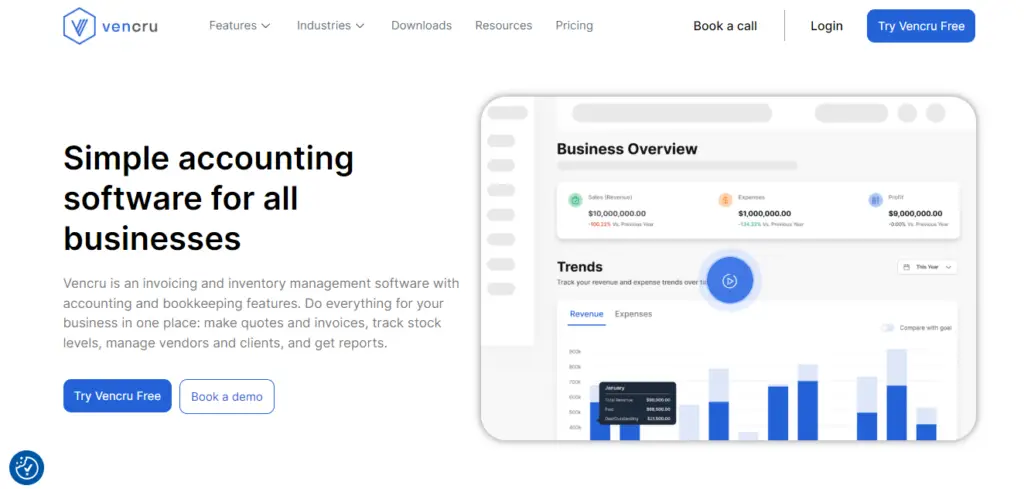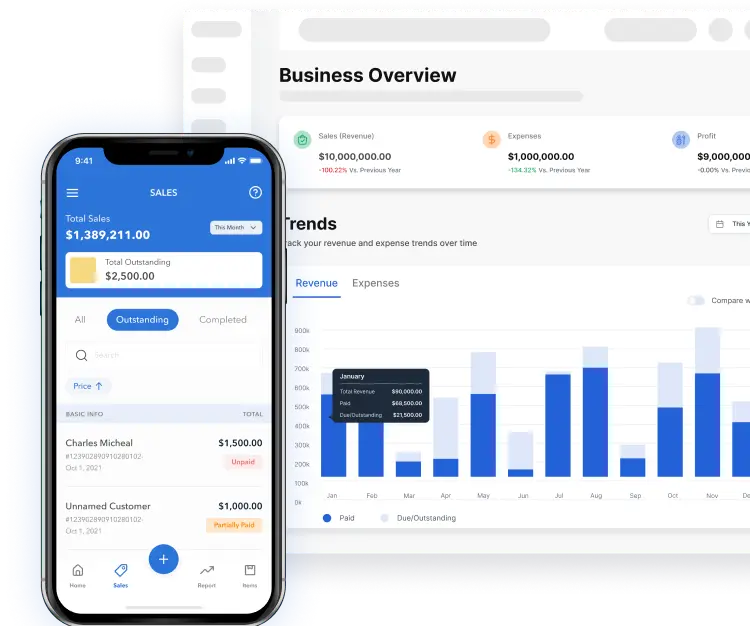Starting a new business venture can be both exciting and challenging. To help make your startup journey smoother, we’ve compiled a list of essential software tools every startup needs that cover various aspects of running a new company. From website building to accounting and everything in between, these tools are designed to streamline your operations and boost productivity. Let’s dive in!
- Website Builders
- Email Hosting
- Collaborative Tools
- Design
- Building your Team: Freelancers
- Accounting
- Spend Management Software
- CRM Software
- Payroll
- Payment Gateways
- Paying International Contractors
1. Website Builders
Why It’s Important: A solid online presence is non-negotiable for startups. These website builders allow you to efficiently create and manage your website, even if you’re not a tech whiz.

- WordPress: WordPress is a versatile and user-friendly platform for building and managing websites. It offers various plugins and themes to customize your site’s look and functionality. (Free to start, with premium options available)
- Webflow: Webflow empowers you to create responsive, visually stunning websites without coding. It’s perfect for startups looking to make a solid online presence. (Free trial available; paid plans start at $12/month).
- GoDaddy Website Builder: GoDaddy provides an easy-to-use website builder with hosting services. It’s an excellent choice for startups that want a simple and hassle-free website setup. (Free trial available; paid plans start at $6.99/month).
2. Email Hosting
Why It’s Important: Professional email hosting ensures your communication is reliable, secure, and branded with your business domain.
- Office 365: Microsoft’s Office 365 offers robust email hosting, along with essential office software like Word, Excel, and PowerPoint. It’s a comprehensive solution for professional communication. (Paid plans start at $5/user/month)
- Google Workspace: Formerly G Suite, Google Workspace provides secure email hosting, cloud storage, and collaborative tools like Google Docs and Google Meet. (Paid plans start at $6/user/month)
3. Collaborative Tools
Why it’s Important: These tools facilitate seamless communication and collaboration with your team, partners, and clients, regardless of location.

- Zoom: Zoom is a popular video conferencing tool that enables seamless communication and collaboration among team members and clients. (Free and paid plans available)
- Loom: Loom allows you to create quick video messages and tutorials, making explaining complex ideas easier or providing feedback. (Free and paid plans available)
- Google Meet: Google Meet is a video conferencing solution integrated with Google Workspace, offering secure and efficient virtual meetings. (Free and paid plans available)
4. Design
Why It’s Important: Design matters; these software tools help you create visually appealing products, websites, and marketing materials.
- Figma: Figma is a collaborative interface design tool that streamlines web and mobile applications’ design and prototyping process. (Free and paid plans available)
- Adobe XD: Adobe XD is an industry-standard design and prototyping tool that enables you to create stunning user experiences. (Free and paid plans available)
5. Building your Team: Freelancers
Why It’s Important: Access to a global talent pool is vital for startups to tackle various tasks without needing full-time hires.
- Upwork: Upwork is a vast online marketplace where you can find freelancers for various tasks, from content writing to web development. (Free to join, fees based on project costs)
- Fiverr: Fiverr is another platform connecting businesses with freelancers and offers a wide range of services. (Free to join, prices based on project costs)
6. Bookkeeping and Accounting
Why it’s Important: Proper financial management is the backbone of your startup. These tools ensure accurate bookkeeping and financial insights.

- Vencru: Vencru is an all-in-one accounting and business management software for small businesses and startups. It includes invoicing, inventory management, vendor management, accounting, business planning, reporting, expense tracking, and multi-currency support. (Free and paid plans available).
- FreshBooks: FreshBooks is cloud-based accounting software with features like invoicing, expense tracking, and time tracking. It’s great for startups that need efficient financial management. (Free trial available; paid plans start at $15/month).
- Xero: Xero is a comprehensive accounting solution with powerful features, including bank reconciliation and multi-currency support. It’s suitable for startups with complex financial needs. (Free trial available, paid plans start at $11/month).
- QuickBooks: QuickBooks is a widely used accounting software that offers various versions, including one for startups. It simplifies accounting tasks and provides detailed financial insights. (Free trial available; paid plans start at $25/month).
- Wave Apps: Wave Apps is a free accounting and invoicing platform for small businesses. It’s a budget-friendly option for startups with limited resources.
7. Spend Management Software
Why It’s Important: Managing your startup’s finances efficiently, controlling expenses, and forecasting cash flow are crucial for sustainable growth.
- Brex: Brex is a financial technology company that offers corporate credit cards and expense management solutions. It’s designed to help startups manage their spending effectively.
- Ramp: Ramp provides spend management software that helps startups control expenses, automate accounting, and gain insights into company spending.
- Float: Float is a cash flow forecasting and management tool that helps startups stay on top of their finances by predicting future cash flow.
8. CRM Software
Why it’s Important: Customer relationship management is critical to building and retaining a loyal customer base.
- HubSpot: HubSpot offers a comprehensive CRM platform that helps startups manage customer relationships, track leads, and automate sales processes. (Free and paid plans available)
- Keep: Keep by Google is a simple, free CRM tool that assists startups in managing contacts, tasks, and follow-ups. It’s great for businesses just getting started.
9. Payroll
Why it’s Important: Managing payroll is essential for legal compliance and employee satisfaction.

Image Source (proche)
- Gusto: Gusto is a payroll and HR software designed for small businesses and startups. It simplifies payroll processing, benefits administration, and compliance. (Paid plans start at $39/month)
- Rippling: Rippling offers a fully integrated HR and payroll platform that streamlines employee onboarding, payroll, and IT setup. (Pricing available upon request)
- Deel: Deel specializes in international payroll and compliance, making it easier for startups to pay international contractors and freelancers. (Pricing available upon request)
10. Payment Gateways
- Stripe: Stripe is a popular online payment processing platform that enables startups to accept payments securely, manage subscriptions, and handle international transactions. (Pricing based on transaction volume)
- PayPal: PayPal is a widely recognized payment gateway that allows startups to receive payments, send invoices, and manage online transactions. (Fees based on transaction type)
- Adyen: Adyen is a global payment company that provides a unified payment solution, making it easier for startups to accept payments worldwide. (Pricing available upon request)
- Rapyd: Rapyd is a fintech platform that offers payment solutions for startups looking to optimize their global payment operations. (Pricing available upon request)
11. Paying International Contractors
Why it’s Important: These software tools are crucial for seamless payments if your startup involves international contractors or remote workers.
- Wise (formerly TransferWise): Wise is a reliable and cost-effective way to send and receive international payments, making it ideal for startups working with international contractors.
- WorldRemit: WorldRemit offers international money transfer services, allowing startups to send payments to freelancers and contractors worldwide easily.
These software tools cover various aspects of running a startup, from establishing your online presence to managing finances and collaborating effectively. Depending on your startup’s needs, you can mix and match these tools to create a tailored software stack that helps your business thrive. Whether you’re a solopreneur or part of a growing team, these tools are designed to make your startup journey smoother and more efficient.
Related: 10 Free Tools for Small Businesses






